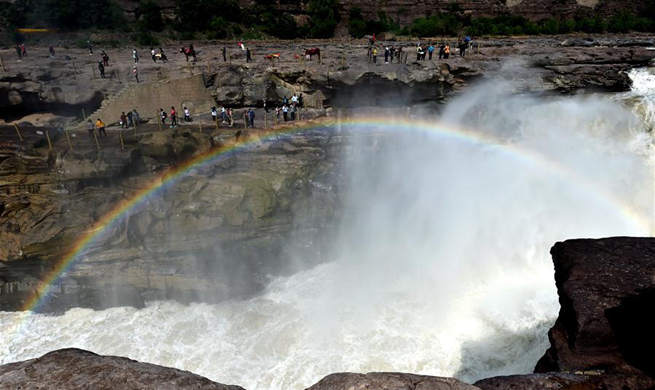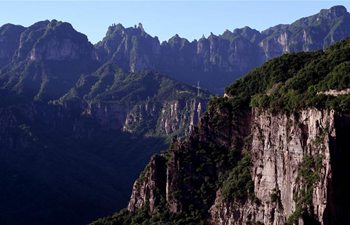BERLIN, May 23 (Xinhua) -- Investments in climate protection support economic growth, whereas neglecting climate protection leads to losses, according to a study carried out by the Organization for Economic Cooperation and Development (OECD) presented Tuesday at the Petersberg Climate Dialogue on here.
The OECD study "Investing in Climate, Investing in Growth" was commissioned as part of Germany's G20 presidency in 2017. The report highlights that a climate protection policy, supported by structural and fiscal reforms, has a positive effect on the economic output of all G20 states.
"Climate protection pays off," environment minister Barbara Hendricks told participants at the climate dialogue event. "An ambitious climate protection policy, supported by coherent growth measures will lead to an increased economic output by almost 5 percent on average across the G20 states in 2050."
According to the study, losses in economic growth can only be avoided by an immediate reduction of greenhouse gas emissions. The OECD estimates that an investment in infrastructure of 6.3 trillion U.S. dollars annually on average between 2016 and 2030 is required in order to meet the development needs across the G20. If the plans are aligned with the goal of limiting global warming by two degrees, agreed during the 2015 UN Climate Change Conference in Paris, the required investment increases by 600 billion U.S. dollars, only 10 percent more than the carbon-intensive alternative. This would be offset by the resulting fuel savings of about 1.7 trillion U.S. dollars per year.
The OECD study stressed the importance of long-term climate protection goals like Germany's Climate Action Plan 2050. Achieving these goals requires combining different areas of politics to support economic growth and transforming into a sustainable and socially-responsible economic system.
While the report focuses on investments and improvements to infrastructure, it recognizes the importance of afforestation and reforestation, as well as changed agricultural practices.
Global managing director for lands at The Nature Conservancy, Justin Adams, told Xinhua, "Nature is the world's oldest climate technology and it is great to see the potential of natural climate solutions recognized by G20 countries. Investing in better management of our forests, fields, farms and wetlands can reduce and capture carbon dioxide today and help countries from north and south achieve their Paris targets with simple and cost-effective policy interventions."
"Far from being a dampener on growth, integrating climate action into growth policies can have a positive economic impact," said OECD Secretary-General Angel Gurria, who was presenting the report at the Petersberg Climate Dialogue in Berlin. "There is no economic excuse for not acting on climate change, and the urgency to act is high."
Governments can generate growth that reduces the risks of climate change and provides jobs and health benefits. "This is our chance now to combine economic prosperity and climate protection," Hendricks said.

















